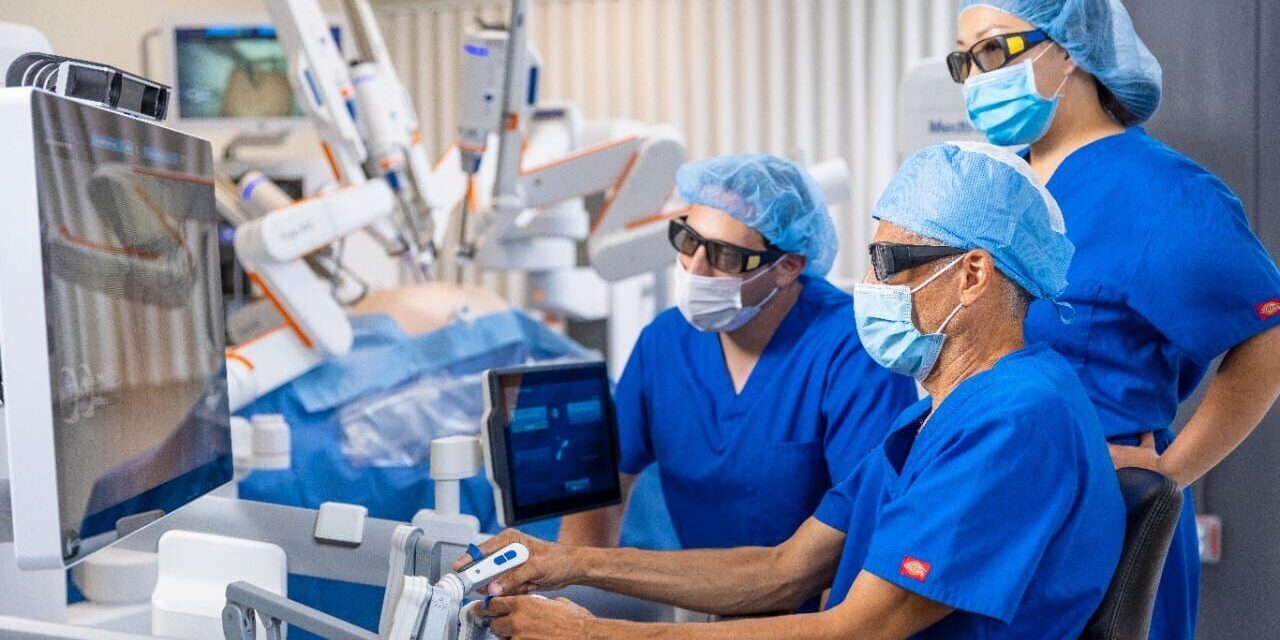Data from a US investigational device exemption clinical study for robotic-assisted hernia repair support the system’s safety and effectiveness.
Medtronic plc has announced that its Enable Hernia Repair clinical study, evaluating the Hugo robotic-assisted surgery (RAS) system, met its primary safety and effectiveness endpoints for inguinal and ventral hernia repair procedures. The prospective, multi-center study is the first Investigational Device Exemption (IDE) clinical study completed for robotic-assisted hernia surgery in the US, according to a release from the company, and included 193 patients.
“The Enable Hernia Repair clinical study didn’t just meet primary endpoints; it far surpassed them,” says Jacob Greenberg, MD, national principal investigator of the study and gastrointestinal surgeon at Duke University Hospital, in a release. “I am proud to have had the opportunity to advance clinical research in robotic-assisted surgery for the benefit of patients in the United States and around the world.”
Hernia repair is one of the most common surgeries in the US, with nearly 1.5 million procedures performed annually. In the Enable Hernia Repair study, the mean length of hospital stay for patients undergoing procedures with the Hugo system was 4.7 hours for inguinal repairs and 6.7 hours for ventral repairs.
“The addition of the Hugo platform to our field introduces exciting new opportunities to innovate and advance robotics in the best interests of patients, surgeons, and hospital systems while clearly offering the clinical results we expect from robotic-assisted surgery,” says David Chen, MD, a general surgeon at UCLA and lead presenter of the data at the American Hernia Society meeting, in a release.
Regulatory and Market Outlook
In the US, the Hugo RAS system remains an investigational device and is not for sale. A submission by Medtronic for a urology indication is currently under review by the US Food and Drug Administration, with the company planning future indication expansions into hernia repair and gynecology. The system is commercially available in more than 30 countries and is CE marked in the European Union.
“Adding a digitally powered robotic-assisted surgery system to our laparoscopic and open surgery solutions for hernia repair gives surgeons more choice and patients greater access to the care they need,” says Rajit Kamal, vice president and general manager of robotic surgical technologies within the surgical business of Medtronic, in a release.
Photo caption: The Medtronic Hugo robotic-assisted surgery system.
Photo credit: Medtronic plc





